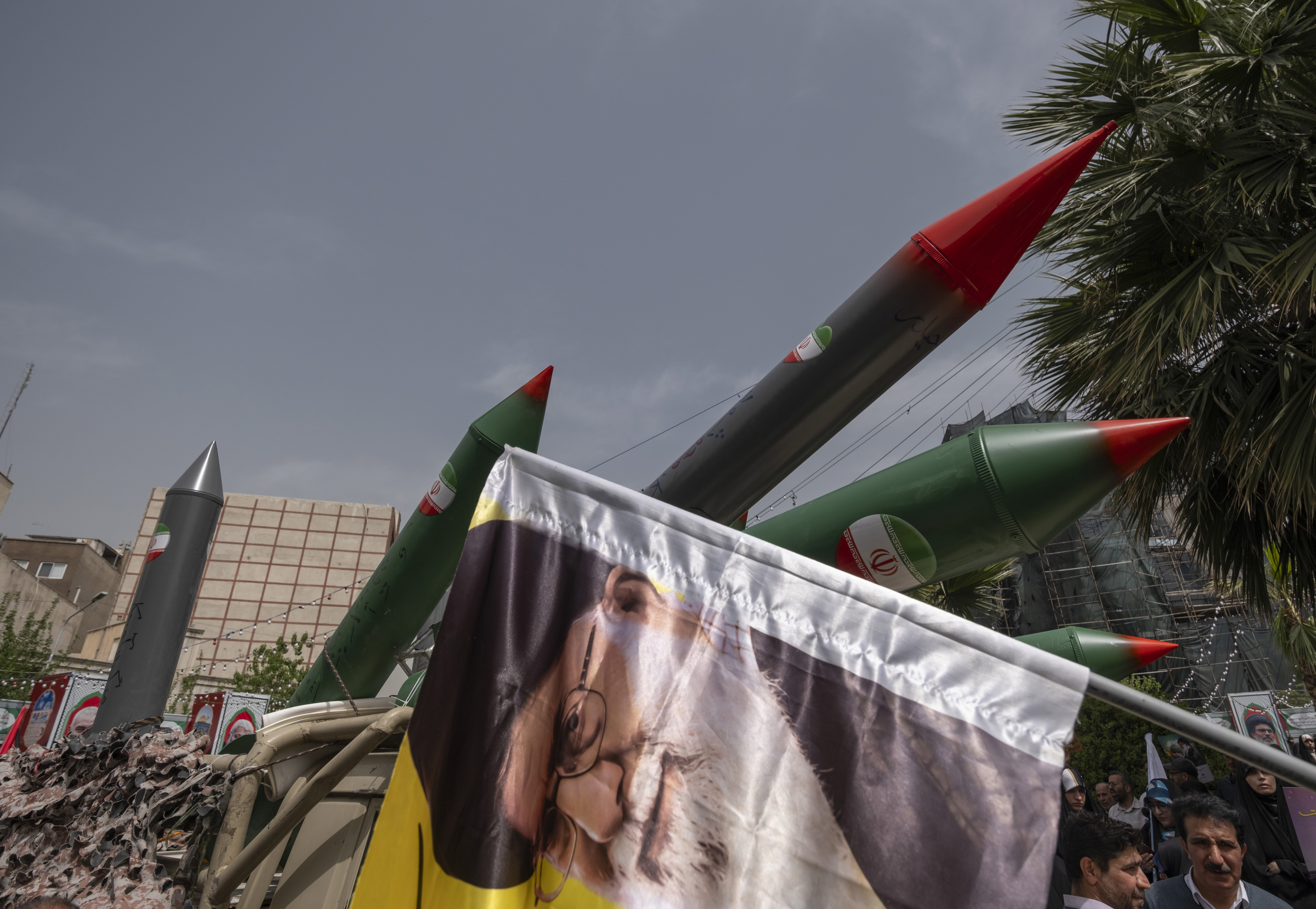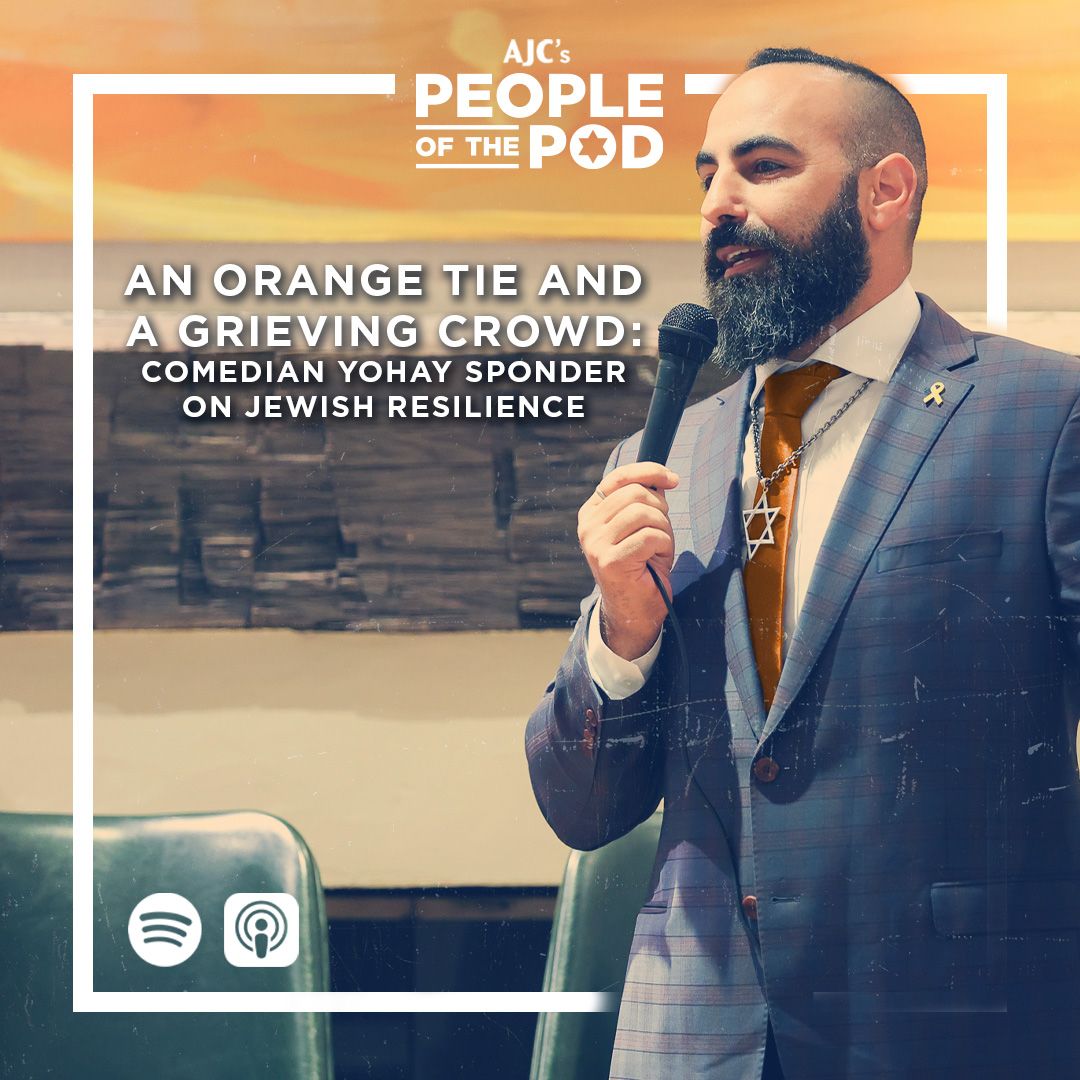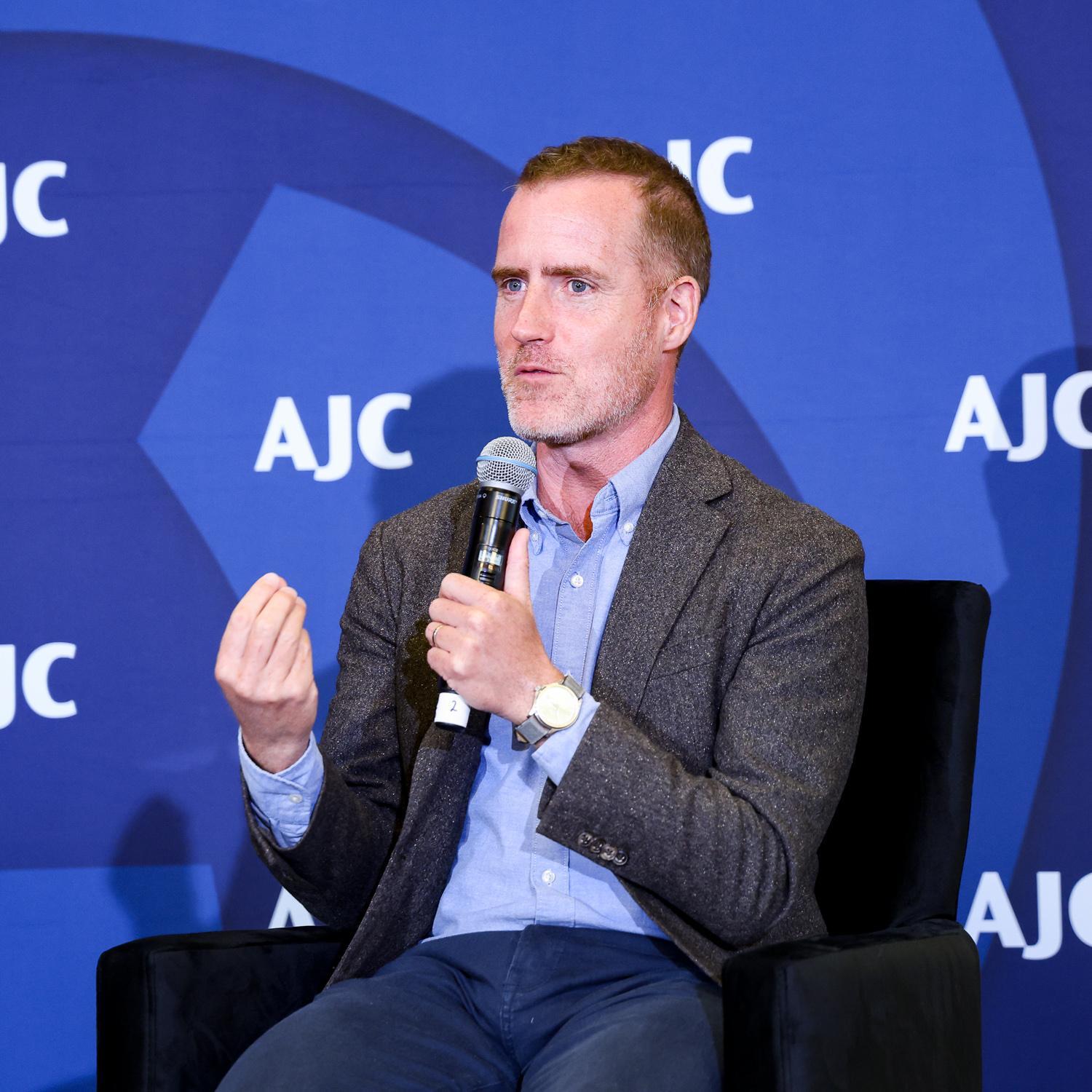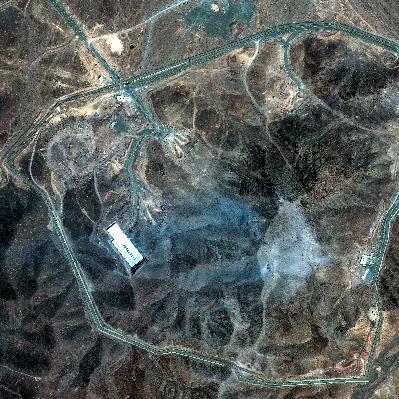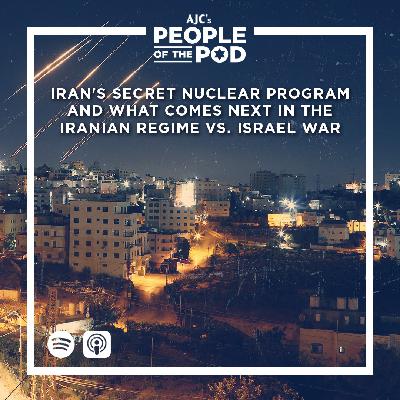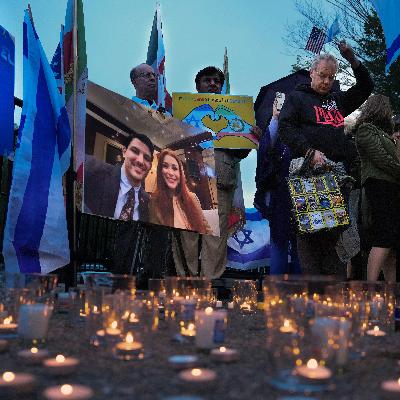Why Israel Had No Choice: Inside the Defensive Strike That Shook Iran’s Nuclear Program
Description
Why did Israel launch defensive strikes against Iran’s nuclear sites — and what does this mean for regional security? AJC Jerusalem Director Lt. Col. (res.) Avital Leibovich joins from IDF reserve duty to explain Operation Rising Lion — Israel’s precision military strikes aimed at dismantling Iran’s nuclear and missile capabilities. Find out why Israel saw this defensive action as vital to protect millions of lives and prevent Iran’s nuclear breakout.
Resources:
Listen – AJC Podcasts:
Follow People of the Pod on your favorite podcast app, and learn more at AJC.org/PeopleofthePod
You can reach us at: peopleofthepod@ajc.org
If you’ve appreciated this episode, please be sure to tell your friends, and rate and review us on Apple Podcasts or Spotify.
Transcript of the Interview:
Manya Brachear Pashman
Late Thursday night, Israel launched a series of preemptive strikes against Iran in a military offensive dubbed Operation Rising Lion. The wave of strikes comes after the International Atomic Energy Agency censured Iran for obstructing its inspections after the revelation of a secretive nuclear site. What is happening on the ground, what's next, and what are the implications for Israel, Iran, and the broader Middle East? AJC Jerusalem director, Avital Leibovich, who also serves as Lieutenant Colonel in the IDF reserves, joins us now from reserve duty as counterattacks from Iran have begun. Avital, thank you for joining us with pleasure. Avital, negotiations for a new nuclear deal with Iran have been underway since April. There have been five rounds, maybe six, and another was going to begin on Sunday. President Trump also asked Israel to hold off on this preemptive operation. So why did Israel choose to launch these strikes? At this particular time,
Avital Leibovich
Israel took a decision already to prepare for a preemptive attack on Iran. Since November, what happened in November? In November, Hezbollah lost the majority of its capabilities, of its military capabilities, and also of its leadership. Actually, a lot of his leaders, military leaders, have been eliminated, starting with Nasrallah, Hassan, Nasrallah, and going on to all the major generals of the organization. And basically the Shiite axis, as we call it here in Israel, was broken. Add to this, what happened a month later in December, when Assad's regime crashed, collapsed and was replaced by an anti Iranian man, jihadist, which jihadist background, by the name of Ahmed al Shara. So Iran was actually by on its own, really, because instead of circling Israel from the north, both from Syria and from Lebanon. Now it was circling in a very one dimension way, only from the east. So in order to do that, Iran figured out it needed to really upscale its nuclear capabilities, and for that, they sped up a few processes, for example, uranium enrichment, but not only that, also the weaponization of a potential nuclear bomb. And all of these steps actually brought us to a point that we are today, the point of no return. Iran will not be able to return to 20 years ago, 30 years ago, when it did not have those capabilities as it has today. For us in Israel, this is an issue of existence, either we exist or we don't, and that is the sole reason why the preemptive strike actually began today. This is according to Israeli intelligence, we have all the indications and data showing us this really major leap. And look the IAEA, you know, they issue reports every couple of months. It's their kind of responsibility for us. It's a matter of life and death. We cannot, you know, comply only with reports. And the reports sit on some shelf somewhere and and there's a lot of dust which is piling up on these reports for us, we needed action. So based on this very accurate intelligence, and some of this intelligence that has been accumulated for many, many years, you can see in the attack in Iran, you can see the very accurate attacks, the pinpointed strikes, which actually are directed at specific terrorists and not causing damage to uninvolved civilians, just To the locals. Yeah,
Manya Brachear Pashman
And how do you evaluate the Trump administration's response so far, given the diplomatic efforts underway? Well,
Avital Leibovich
I think that he is using the attacks to leverage and put pressure on Iran to resume the negotiation table in a few days. And as you know, there were six rounds of talks, and the best of my knowledge, there were huge gaps between the two sides, the American side and the Iranian side. I'm not sure these gaps can be bridged. We heard over and over again, President Trump say that Iran will never be able to enrich uranium. And then we heard Iranian leaders like Hamina say, this is the basic right of the Iranian people to enrich uranium. So I'm not sure how you can get you can bridge such a deep gap overall, I think that the President. Uh, has been congratulating Israel on its excellent attacks until now. But again, we are in the beginning. We're in the beginning phase of the attacks, although they're spread all over Iran. This is still the first day. We need to keep this in mind.
Manya Brachear Pashman
The targets included more than nuclear sites. It included ballistic missile sites as well, and we're receiving word that Iran has fired ballistic missiles toward Israel as we speak, they fired ballistic missiles on Israel in April. If this counterattack continues, do you expect the United States to step in to defend Israel, and do you expect some of your neighbors to step in and help as well as they did in April the United Arab Emirates or Bahrain
Avital Leibovich
So as for the neighbors, I think that if their aerial space will be violated and breached by Iran, then of course, they have the right, like any other country, they're sovereign, to protect their own airspace. First of all, they will be protecting themselves and their people, not Israel, as for the US. This really depends on what Iran chooses to do next. The retaliation that Iran had practiced until now was launching 100 plus drones, explosive drones, to Israel. Almost all of these drones have been intercepted. This happened in the morning today. Now if Iran will decide that the ballistic missiles or the cruise missiles that it will launch here, will attack not only Israel, but also US bases across the region. Then here, there's a question, how will the US respond? Will the US retaliate as well? If that would happen, we could have even a more significant strike together the US and Israel.
Manya Brachear Pashman
These attacks killed two lead scientists, IRGC commanders, Islamic Revolutionary Guard Corps leaders. Is there a long-term goal of prompting a regime change?
Avital Leibovich
So first of all, there are few types of targets in Iran, and you mentioned some of them. Physics and nuclear scientists are, of course, a critical human resource to the Iranian regime, as they rely on their long term knowledge and expertise on producing the bomb as soon as possible, as quick as possible, and by eliminating them in a way, you are removing the immediate threat. Other options are economic options. For example, really Iran relies on oil and buys it from China and maybe other countries as well. So obviously, Israel could decide to target its oil reserves, and this will be, of course, a significant economic blow. The third option is to target the government, leadership, politicians. Now, Israel, up to this moment, did not choose an economic target or a political target, but this may change in the future. The military targets, of course, are the most immediate targets that Israel is attacking, and the idea is to eliminate the immediate threat on Israel for the long range? Well, in the Middle East, in this part of the world, unfortunately, long range is something we can only put as a vision which is not bad. I'm happy to dream. I'm dreaming often Iran, which is similar to the Iran we knew before 1979 before the revolution, a moderate country, a human, loving country with values that I can share and adopt just the same. I'm looking at a different Middle East, maybe in a few years, with an expansion of the Abraham Accords, and creating an axis of moderate countri

